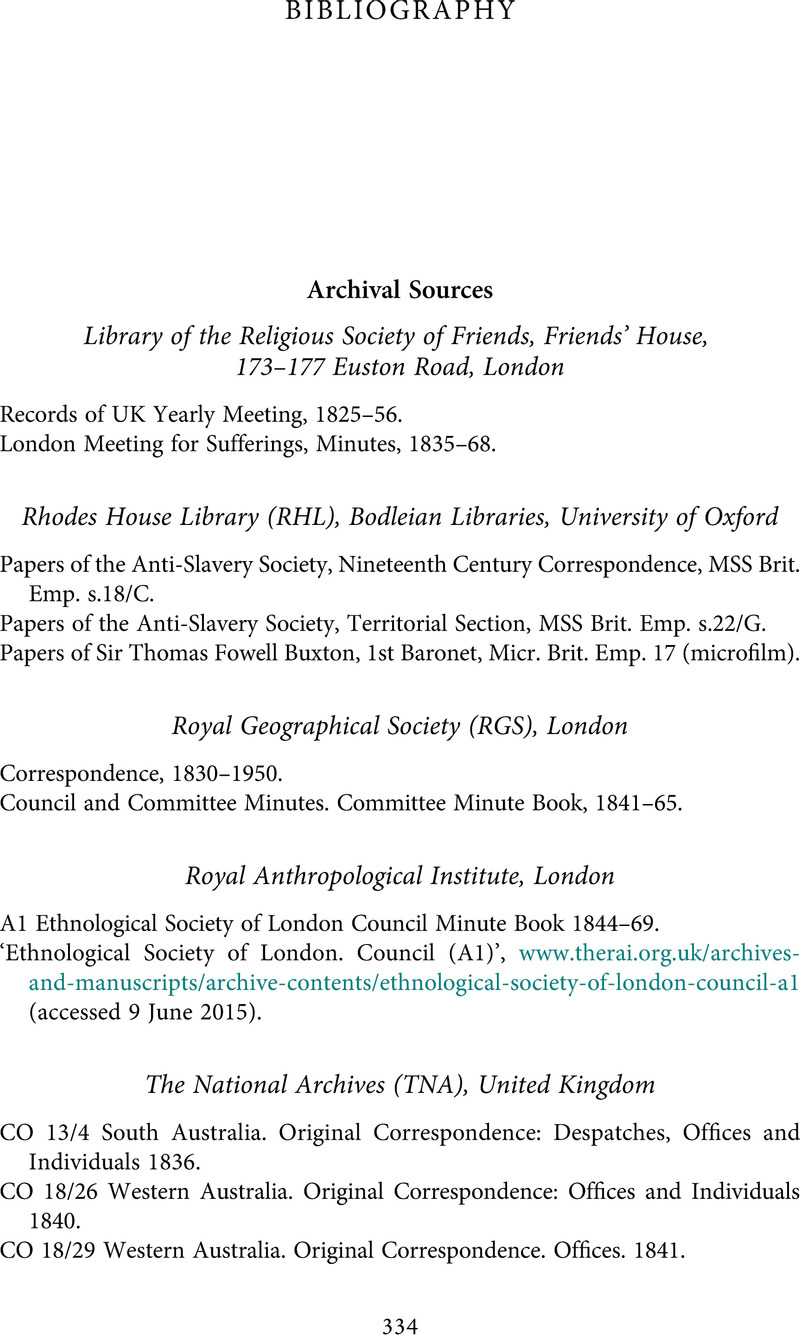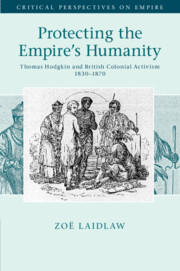Book contents
Bibliography
Published online by Cambridge University Press: 14 September 2021
Summary

- Type
- Chapter
- Information
- Protecting the Empire's HumanityThomas Hodgkin and British Colonial Activism 1830–1870, pp. 334 - 358Publisher: Cambridge University PressPrint publication year: 2021



